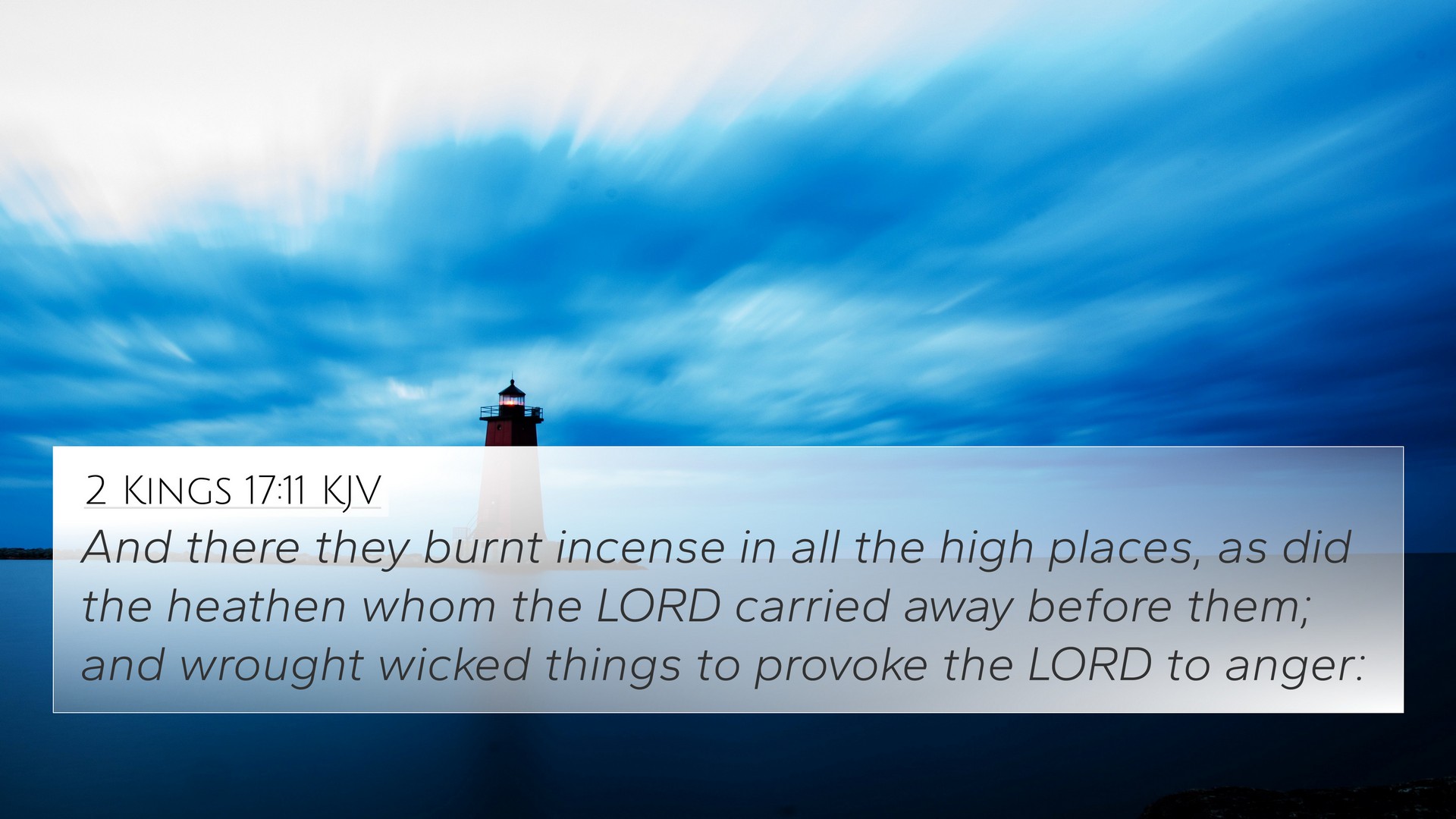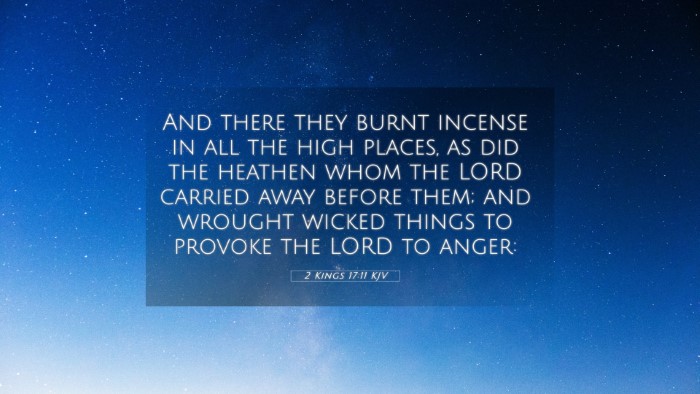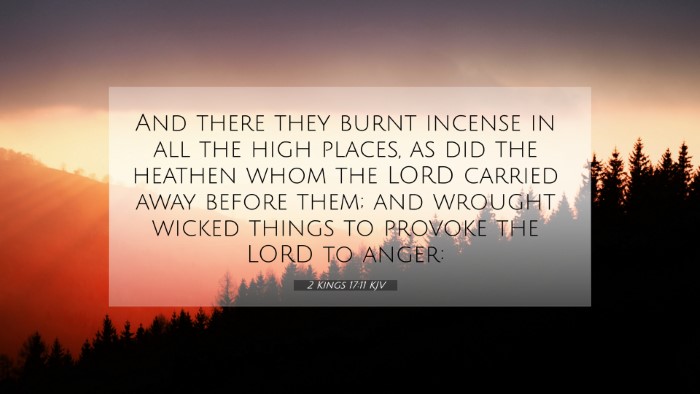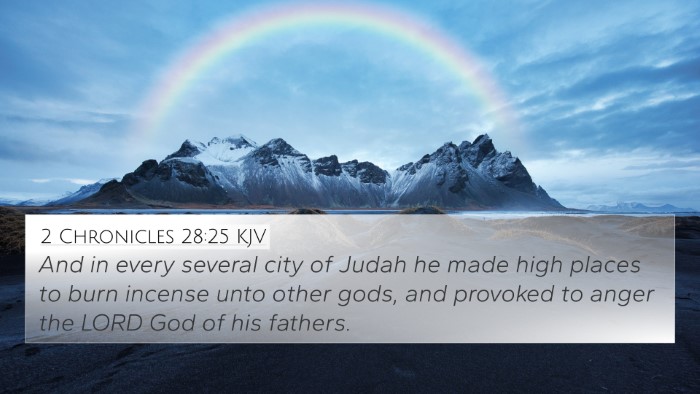Understanding 2 Kings 17:11
2 Kings 17:11 states:
"And there they burnt incense in all the high places, as did the heathen whom the Lord carried away before them; and wrought wicked things to provoke the Lord to anger." (2 Kings 17:11, KJV)
This verse is pivotal for understanding the spiritual failure of the Israelites and the reasons for their eventual exile. In this context, we will analyze the meaning of this verse, drawing insights from the public domain commentaries of Matthew Henry, Albert Barnes, and Adam Clarke.
Summary of Insights
The commentary analysis reveals several key themes and implications:
- Idolatry and High Places:
Matthew Henry discusses the significance of the 'high places,' which were sites of worship that inevitably became centers for idolatry. The Israelites adopted practices from the heathen nations, emphasizing their rebellion against God.
- Burning Incense:
Albert Barnes notes that burning incense is a practice associated with worship and offering. This act, akin to that of the surrounding nations, symbolizes the Israelites' blending of pagan customs with their faith, demonstrating their infidelity to Yahweh.
- Provoking the Lord:
Adam Clarke remarks on the phrase "provoked the Lord to anger," highlighting the seriousness of Israel’s actions. The deliberate choice to perform wicked acts in opposition to God embodies a direct challenge to divine authority.
Thematic Connections
This verse serves as an important nexus for various themes throughout the Bible such as idolatry, judgment, and God's covenant faithfulness. Below are some relevant cross-references:
- 1 Kings 14:23 - Discusses the high places and idols established by Jeroboam.
- 2 Chronicles 28:2 - Reflects on similar actions of idolatry among the people of Judah.
- Ezekiel 18:30 - Calls for repentance away from idolatrous practices.
- Amos 2:4 - Speaks to the judgment against Israel for their transgressions.
- Deuteronomy 32:16 - Illustrates the provocation of God through foreign gods.
- Isaiah 65:3 - Defines Israel’s rebellion as a continuous act of provocation against God.
- Jeremiah 32:29 - Foretells destruction resulting from idolatry.
Implications for Modern Believers
The implications of 2 Kings 17:11 extend beyond its historical context to offer warnings and lessons for modern believers:
- Heed the Warnings of Idolatry: The exchange of true worship for idolatrous practices serves as a stark reminder of how quickly one can deviate from faithfulness to God.
- Understand the Consequences: The anger of the Lord that results from such actions prompts reflection on the gravity of disobedience to divine commandments.
- Importance of Repentance: Recognizing and turning away from sin is crucial in maintaining a right relationship with God, as emphasized throughout both Old and New Testaments.
Cross-Referencing and Thematic Connections
Effective Bible study often involves cross-referencing texts to gain a deeper understanding:
- Bible verse cross-references can help us explore themes of worship and idolatry.
- Using a Bible concordance allows you to find similar instances of disobedience within scripture.
- Implementing cross-reference study methods enhances one's understanding of inter-textual dialogues.
- Consider the Bible reference resources that illustrate connections between different books of the Bible.
- Utilize a cross-reference Bible study guide to systematically explore these themes.
Conclusion
2 Kings 17:11 serves as a crucial verse that not only illustrates the spiritual failings of the Israelites but also opens the door to extensive thematic analysis through scriptural cross-referencing. By understanding the context, themes, and implications of this verse, modern believers can draw parallels to their faith journey, emphasizing the necessity of true worship and obedience to God's commandments.







